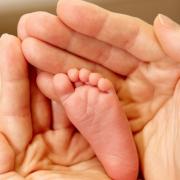
At a time when Scotland boasts a rising birth rate, most people have heard of midwives, but what about 'doulas'? Laura Joffe, a qualified midwife, doula, and former Bellevue resident explains.
Some people actively want to give birth in hospital, and some people need to do so for medical reasons such as heart conditions. But for most of us, that decision is taken out of our hands by a GP or midwife who thinks a home-birth will be inconvenient.
So what might it mean instead to give birth in Broughton?
Well, first off, your midwives would come to you. That means you wouldn't need to hurtle through town while your partner deals with contractions in the passenger seat. You also wouldn't need to fork out for a taxi, and you definitely wouldn't need to pay the extortionate parking fees at the Edinburgh Royal Infirmary.
Second, your midwives would bring with them all the equipment you and they need to manage the birth at home. Your care in labour and birth would also be very much the same as in a hospital-birth – your pulse and blood pressure would be measured just the same way. Rest assured, if the midwife considered it not safe for you to give birth at home, you would be told.
Next, many people feel more comfortable in their own home, where they can have the room as hot or cold as they want it, pace up and down the stairs, or nip out to the garden for some sunshine. Amazing as it seems, these things make labour much more bearable. Entering the hospital environment, on the other hand, is relatively stressful for most of us. That in itself is enough to increase the pain. And being taken to a small, cramped room and made to lie down on a bed is enough to slow labour.
Here's why. Imagine you're pulling a tight sweater down over your head. Do you just pull? No. You jiggle it this way and that, drawing it from one side to the other, and easing it over your head. It's the same for your baby, trying to be born. If you sit on your bottom, it's like pulling the sweater
straight down. That takes a lot more effort. If you walk around, sway your hips side-to-side, your baby eases down more gently. Unfortunately,
hospitals don't have much space for women to move around in.[img_assist|nid=803|title=|desc=|link=node|align=right|width=152|height=200]
What if something were to go wrong? Well, it's not like Broughton is in the Outer Hebrides. You live close to state-of-the-art medical facilities which
are just a 20-minute drive away. It is possible to transfer to hospital in labour. Most caesarean births are not dire emergencies, with patients often
waiting around for an hour in hospital anyway. Yes, there are other types of emergencies, but a lot of these are dealt with in the home in exactly the same way as in hospital. (There will always be baby-resuscitation equipment at a home birth, for example.)
In other ways, homes are much safer than hospitals. At home you are surrounded by your very own, familiar germs. In hospital you are exposed to the germs of lots of other people, some of whom are very sick. Do they try to keep it clean? Yes, of course, but you're still less likely to get a
serious infection in your own home.
But what about the pain?' I hear you ask. First off, you need to understand that labour isn't nearly as painful when you are free to move around, and when you feel safe in your own home. Some people hire a birth pool, and some get a doula who can offer support and help with breathing and massage. Many doulas are happy to support home and hospital births. If you want drugs, then gas-and-air is routinely offered at home births. It wouldn't be safe to have an epidural at home, so they aren't offered.
So what exactly is a doula? A doula is a woman (normally a mother) who provides emotional and practical support to women before, during and after birth. Doulas aren't generally available on the NHS, and are hired privately by the families they serve. Doulas don't provide any medical care (that's what the midwife does) so they are not nationally accredited. Doulas vary in training and experience. If you want a doula to support you in birth (home or hospital), then it's best to talk to a couple of doulas before deciding whom you feel most comfortable with. The point is to gain support from a familiar face, so the chosen doula would then meet a client in pregnancy at least twice to chat and discuss her birth choices.
So, it's not bad to be born in Broughton! If you are pregnant, you can discuss your birth choices with your midwife. If you aren't pregnant, but know someone who is, don't be surprised if they tell you they're planning a home-birth!
You can find more information at www.scottishdoulanetwork.co.uk and
http://www.doula.org.uk/
Laura Joffe, doula and qualified midwife